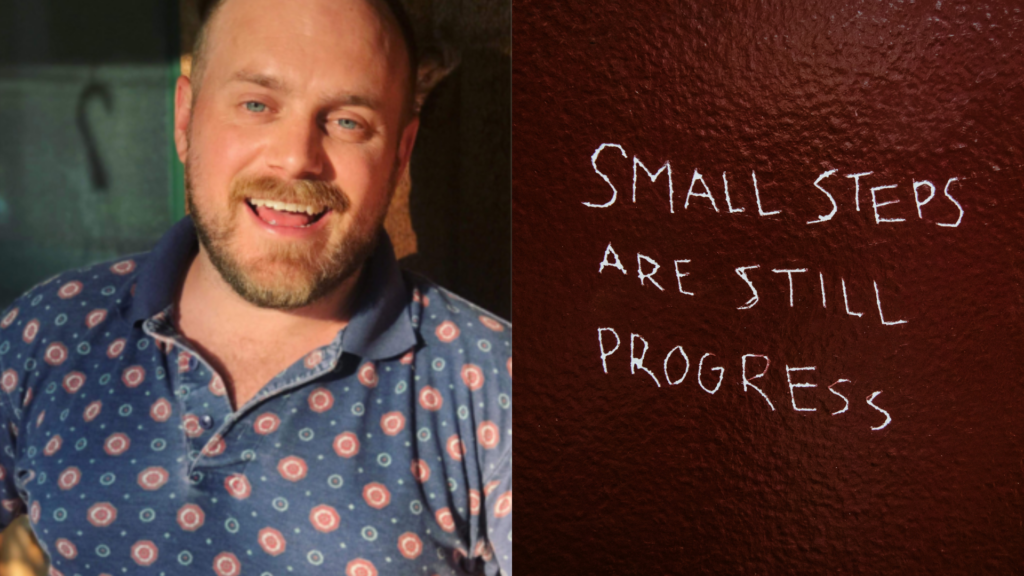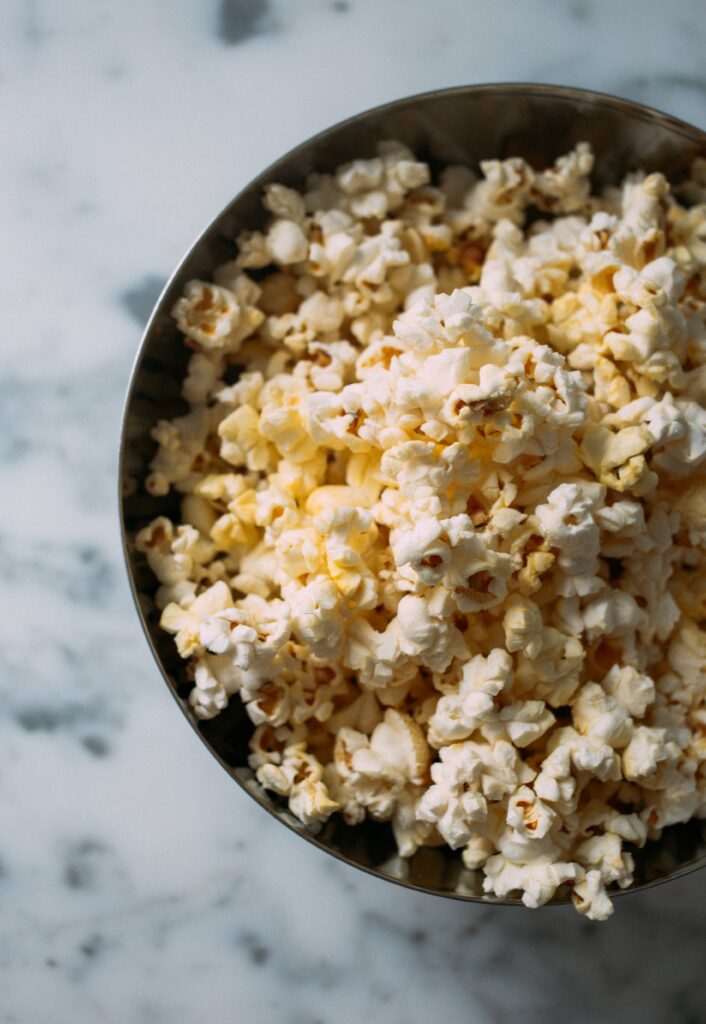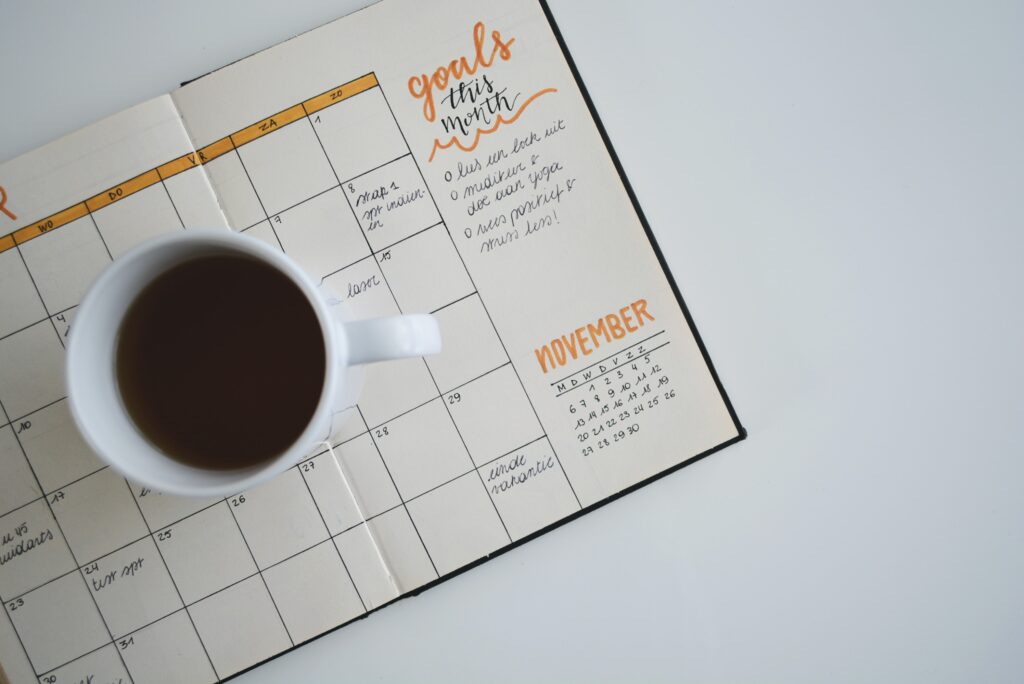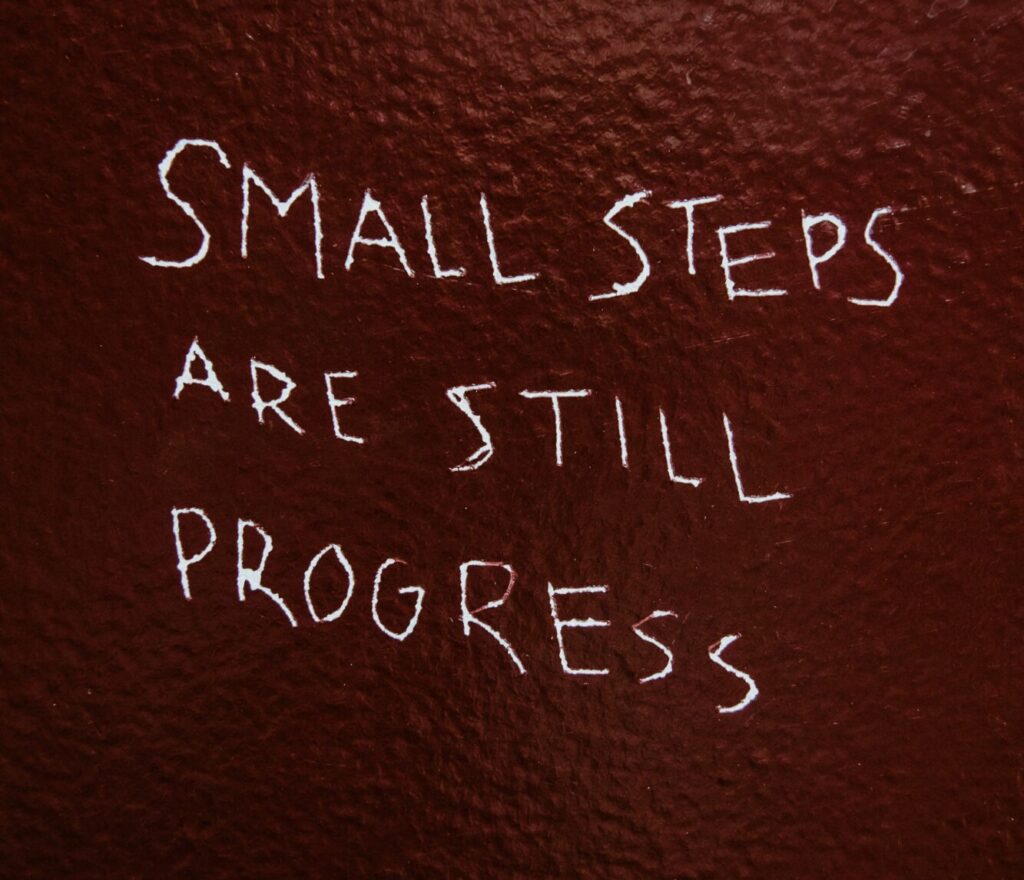
Big Bears, Tiny Habits: A sustainable approach to lifestyle changes
Can doing the least actually bring you the most?
As a bear Health & Wellness Coach, I’ve worked with dozens of guys in our community over the past few years. I know from my work with clients and from my own history that personal change – in any form – is fucking hard.
But that’s usually because we try to do too much too quickly, or because we don’t have a plan. One approach that can help set us up for success is the introduction of tiny habits. So yes, in this area of life it could be beneficial to do the least – but do it consistently.
The concept of tiny habits was created by a human behavior researcher at Stamford years ago, but written about recently by the Harvard Business Review. I’ll get further into tiny habits and how you can form them yourself, but first, let me tell you a client story you may relate to.
One of my first clients years ago was a daddy bear from Buffalo, New York named Jeff. We did our weekly sessions together over Skype. At the time when we first met, Jeff was in a bit of a rut. He wanted to set goals to exercise weekly, gain strength, and overall enjoy his life more.
At the end of our first session, Jeff set his intention to do a 30 minute exercise video in the morning before work 3-4 times that week. When we met up the following week, Jeff admitted that he hadn’t done it.
We tried to learn from that experience and course-correct with a new, scaled down intention: try a 7 minute exercise app 1-2 times that week. Still, when we met the following week, he hadn’t tried it once.
Jeff had seemingly hit a wall. He wasn’t taking action on his goal. Maybe you can relate? I know that I can – however, I do see this with clients all the time, so I know it’s natural. Instead of fretting, we brainstormed fun ways for Jeff to move first thing in the morning.
As with all sessions, I let my clients take the lead – to feel empowered to figure out for themselves what may work best. He landed on the idea of dancing in the morning. But instead of setting the action step of dancing in the morning, Jeff decided that the tiny habit he would form was “turning on pop music while making coffee.”
That’s it. Very simple, very do-able.
And that’s where his transformation started. He put on music every morning while making his coffee — and by doing so, he was prompted to dance.
After weeks of morning dancing, Jeff felt compelled to go on walks at lunch; Months later, he decided to research gyms and would eventually join, even hiring a personal trainer to help him on his fitness journey.
So, if there are changes you wish to make, start small with tiny habits. And if you don’t feel like making changes anytime soon, you can still brainstorm some ideas for tiny habits you may want to form in the future.
Either way, to succeed with tiny habits, you must be intentional and set them up in a way that’s practical and easy to follow. Make this easy on yourself! Here are things to keep in mind as you get started.
Identify a “ridiculously small” tiny habit.
As with Jeff’s example, it took him a few attempts to finally land on a habit small enough: turning on music. So, I encourage you to find a habit that’s so small it’s not worth not doing.
In my coaching, I help clients celebrate achieving the minimum bar and encourage them in the beginning to not extend beyond it. Really aim for small. If your goal is to cook more at home, don’t start the habit of cooking dinner every night. Instead, start with preparing a snack for yourself every day.
What might be one or two tiny habits you could form? And why?

Photo by Kelly Sikkema on Unsplash 
Photo by Charles Deluvio on Unsplash
Piggyback on a daily task.
You should be able to complete your tiny habits every day with minimal effort every day. Building consistency is key, but it’s not easy, no matter the size of the task.
Try to perform your new action at the same time as (or right before) an action you do without thinking. If you’d like to begin meditating, set it up to meditate for 30 seconds while your computer boots up in the morning or right after you brush your teeth at night.
For Jeff, he was already making coffee every morning, so that was a good time to create the habit of playing music.
What are daily tasks you can stack your tiny habit on to?

Photo by Estée Janssens on Unsplash 
Track your progress.
Tracking your progress should be simple. You don’t need an app or a spreadsheet or a complex system. You can keep a physical notebook or a notepad on your phone to simply list Yes or No next to the action step for each date. Do whatever is easiest and simple for you.
When I am working with clients we typically use each session to check in on the previous week. It brings awareness to the client about what he achieved – and if he didn’t achieve the action steps created, he can learn from it.
What is an extremely simple way for you to track your process?

Hold steady for a long time.
Most of the time we are too ambitious and we end up taking on too much. Here is your permission to truly not overdo yourself. A good rule of thumb is to stick with your original tiny habit long enough that you feel bored with it for at least two weeks in a row, and then you can consider increasing it only by about 10%.
As you could see, Jeff didn’t dance a few times in one week and then try to do a 30 minute workout afterward. He kept the dancing routine and then added a short lunchtime walk a few weeks later.
In the past have you ever moved too fast with your or tried to scale up a goal too quickly? Reflect on that for a moment and then give yourself permission to do the least this time around.
Seek help in holding you accountable.
You may feel as though your tiny habits are too insignificant to be enlisting others to hold you accountable – but having people support you and hold you accountable can cement new behaviors. Reach out to trusted friends or a coach like myself who can help hold you accountable to guide you through the process.
Who might you reach out to in order to help keep you accountable?
So remember, big improvements come from small changes. If you aren’t ready to create a few tiny habits now, you can always contemplate what they might be. Be gentle with yourself and try to have some fun along the way.

For more information about my coaching and bear wellness classes, visit BKhealthcoach.com or find me on IG @coach.cub.











